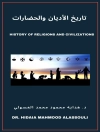In 'Disputation on the Power of Indulgences, ’ commonly known as the ’95 Theses, ’ Martin Luther articulates his groundbreaking theological stance against the sale of indulgences, a practice prevalent in the Catholic Church during the early 16th century. Written in a direct and polemical style, the text challenges the ecclesiastical authority and underscores the principles of justification by faith and the inherent value of personal faith over institutional mediation. This seminal work is often seen as a catalyst for the Protestant Reformation and marks a significant shift in the religious landscape of Europe, as well as a profound commentary on the intertwining of faith, economics, and morality in society. Martin Luther, a German monk and theologian, was deeply influenced by his own spiritual struggles and the prevailing corruption within the Church. His education in philosophy and theology at the University of Erfurt enabled him to critically analyze Church practices. Luther’s conviction that salvation is attainable through faith alone, rather than through monetary contributions, compelled him to pen this revolutionary text, which would ignite reformative movements across Europe. For readers seeking insight into the roots of modern Christianity and the complexities of faith, 'Disputation on the Power of Indulgences’ is an essential read. It invites contemplation on the nature of grace, authority, and individual conviction, making it not only a historical document but also a timeless exploration of spiritual authenticity and ethical considerations.
O autorze
Martin Luther (1483–1546) was a seminal figure in the Protestant Reformation, which fundamentally changed the contours of Christianity and European society. An Augustinian monk, scholar, and theologian, Luther became renowned for his strong objections to the Roman Catholic Church’s practices, particularly with regards to indulgences. His most famous work, the 'Disputation on the Power of Indulgences’ or 'Ninety-five Theses’ (1517), challenged the church’s sale of indulgences and questioned the authority of the pope. Luther’s prolific writing did not stop there; he translated the Bible into German, making it more accessible to the layperson and influencing the German language. His works, which also include 'On the Bondage of the Will’ (1525) and 'Large Catechism’ (1529), reflect his deep religious convictions and his belief in justification by faith alone. Luther’s theology and advocacy for clerical reforms were instrumental in sparking widespread religious reform and the development of Lutheran and other Protestant denominations. His literary style combined rigorous theological argumentation with a flare for vernacular speech, which energized public debate and helped spread his ideas across Europe.










